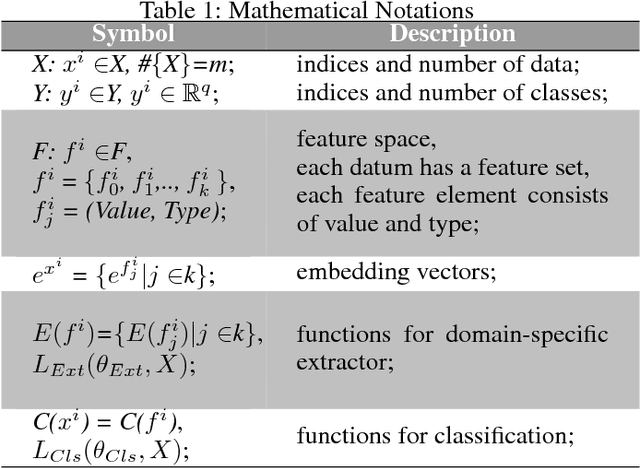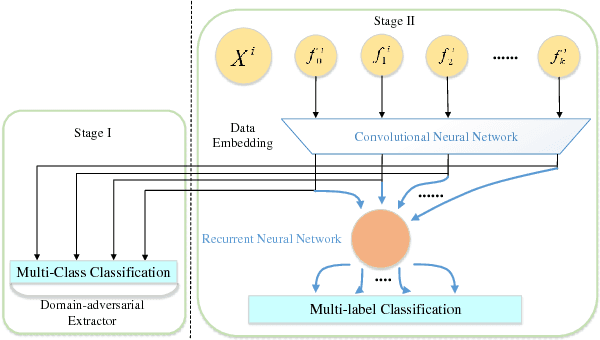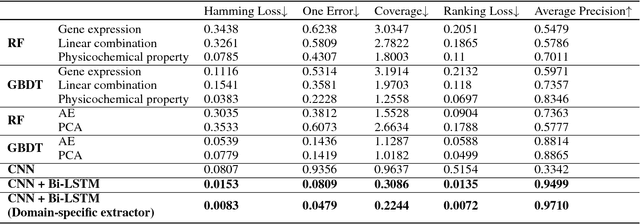Domain-Adversarial Multi-Task Framework for Novel Therapeutic Property Prediction of Compounds
Paper and Code
Sep 28, 2018



With the rapid development of high-throughput technologies, parallel acquisition of large-scale drug-informatics data provides huge opportunities to improve pharmaceutical research and development. One significant application is the purpose prediction of small molecule compounds, aiming to specify therapeutic properties of extensive purpose-unknown compounds and to repurpose novel therapeutic properties of FDA-approved drugs. Such problem is very challenging since compound attributes contain heterogeneous data with various feature patterns such as drug fingerprint, drug physicochemical property, drug perturbation gene expression. Moreover, there is complex nonlinear dependency among heterogeneous data. In this paper, we propose a novel domain-adversarial multi-task framework for integrating shared knowledge from multiple domains. The framework utilizes the adversarial strategy to effectively learn target representations and models their nonlinear dependency. Experiments on two real-world datasets illustrate that the performance of our approach obtains an obvious improvement over competitive baselines. The novel therapeutic properties of purpose-unknown compounds we predicted are mostly reported or brought to the clinics. Furthermore, our framework can integrate various attributes beyond the three domains examined here and can be applied in the industry for screening the purpose of huge amounts of as yet unidentified compounds. Source codes of this paper are available on Github.
 Add to Chrome
Add to Chrome Add to Firefox
Add to Firefox Add to Edge
Add to Edge